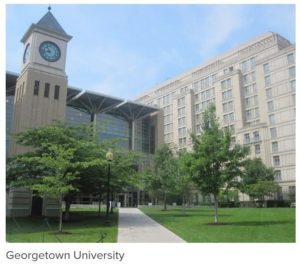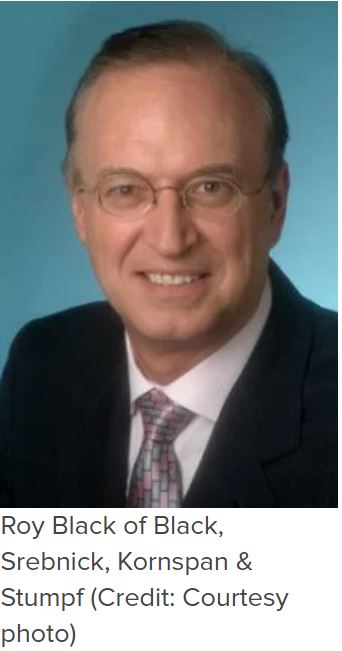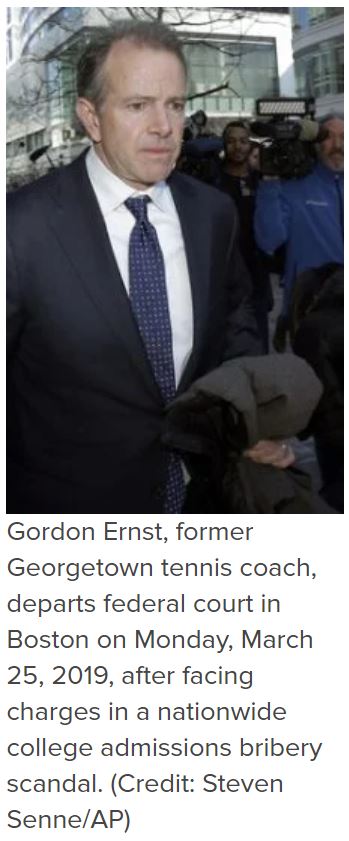Miami Attorney Roy Black Gets Jury to Return First Acquittal in Final College-Admission Scandal Trial


“Everyone said these wealthy people are denying poorer and better students the right to go to these elite universities,” said Roy Black, a senior partner at Black, Srebnick, Kornspan & Stumpf. “I knew that was a hurdle I had to overcome in the jurors’ minds.”
June 21, 2022 at 02:44 PM
By Michael A. Mora

A Miami attorney prevailed for his client, an aviation mogul, acquitted at a Boston federal trial of an illicit $180,000 payment to a Georgetown University tennis coach to facilitate his daughter’s recruitment to the team and admission to the academic institution, in the 57th and final defendant of the college-admission scandal.
Roy Black, a senior partner at Black, Srebnick, Kornspan & Stumpf, credited the use of subpoenas as a “game-changer” in his strategy of defending his client, Amin Khoury, and casting doubt on the prosecutor’s case. As a result, the jury returned the first not-guilty verdict in the government’s Varsity Blues investigation.
“We made Georgetown turn over 52,000 pages of documents, and we kept getting them right until the last day of trial,” Black said. “We turned up all kinds of fundraising tactics they used for admission to the school. And they targeted the Khoury family to fundraise $9 million. The documents showed all kinds of things that were going on behind the scenes.”
Rachael S. Rollins, the U.S. attorney for the U.S. Attorney’s Office for the District of Massachusetts, said despite the adverse verdict, these investigations have resulted in enormous and systemic changes in the college admissions process.

“These cases writ large have exposed the disturbing, improper, and inequitable role that wealth and privilege can play in distorting a system that is supposed to be merit-based,” Rollins said in a statement.
The government accused Khoury, 56, of enlisting a middleman to bribe Gordon Ernst, the then Georgetown tennis coach, with cash in a brown bag, according to court documents. The three men knew one another from their college days competing on Brown University’s tennis team.
However, Black argued that his client gifted Ernst the money to supplement his income as Georgetown’s construction of a new athletic center disrupted the tennis coach’s private summer camp revenue stream. And the cash payment was Ernst’s tactic to avoid paying taxes.
Khoury’s case was unusual in that the defendant took the case to trial—and won. Fifty-four defendants pleaded guilty, and juries returned a guilty verdict for the two additional defendants who went to trial.

And unlike those dozens of wealthy parents convicted in the college cheating scandal involving multiple elite universities, Khoury did not work with Rick Singer, an admissions consultant who bribed coaches and others through a sham charity.
Now, in preparing for the case, Black said he “went to school on what happened in the other cases,” which gave him the advantage of “seeing what the problems were.”
During opening statements, Black argued that the federal government did not have a place in policing these universities, which he called private businesses with no tax dollars involved. As a result, if these universities want to spend 24 hours a day fundraising, that’s their prerogative.
Black knew that in presenting his case, a central issue in the jurors’ minds was whether Khoury’s daughter denied a deserving student a place at the school.
Prosecutors argued she had an academic record that was not on par with admitted students and a competitive tennis record that placed her at the bottom of her high school team.
Black explained that a statistician went through thousands of pages Georgetown’s records, determining that Khoury’s daughter enrolled in a year in which the university had 13 additional seats it could not fill.
“Everyone said these wealthy people are denying poorer and better students the right to go to these elite universities,” Black said. “I knew that was a hurdle I had to overcome in the jurors’ minds. But my client did not deny anybody the right to go to Georgetown.”
And on the stand, Khoury’s daughter testified she had no clue about the payments. Prosecutors accused her of “masquerading as a tennis player” that suffered a shoulder injury inhibiting her from playing tennis.
However, Black pointed to text messages that showed Khoury’s divorce caused their daughter to suffer a debilitating mental breakdown.
And Black explained to the jury that once athletes lose their mental composure, they cannot perform in high-level competition and offered seven-time Olympic gold medalist Simone Biles as an example.
“‘Simone Biles was at the Olympics with billions of people watching, and she spent her whole life training for this,’” Black recalled saying to the jury. “‘She said she can’t do it. And that’s the same with Khoury’s daughter. Tennis was on the bottom of her list. She was in survival mode.’”
